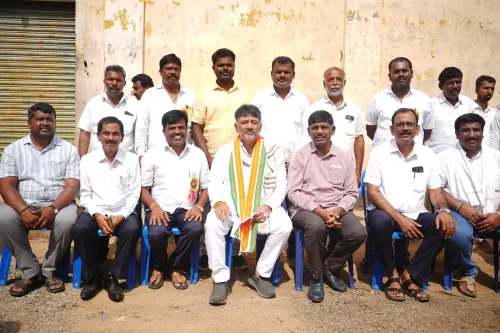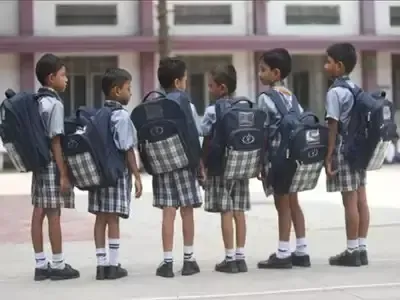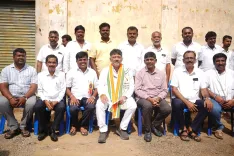Should the SC/ST Act Be Repealed? Jagadguru Rambhadracharya Weighs In

Synopsis
Key Takeaways
- Rambhadracharya advocates for the repeal of the SC/ST Act.
- His claims center on the absence of caste references in the Vedas.
- The SC/ST Act was designed to protect marginalized communities.
- Political implications arise as elections approach.
- Public sentiment regarding caste politics is evolving.
New Delhi, Nov 25 (NationPress) On Tuesday, Jagadguru Rambhadracharya ignited a conversation regarding the SC/ST Act, asserting it ought to be revoked since the Vedas do not reference Avarnas or Savarnas.
In an interview with IANS, Rambhadracharya remarked, “The SC/ST Act should be nullified. The Vedas do not speak of Avarnas or Savarnas; this system was instigated by political leaders… I advocate for the elimination of caste-based reservations.”
The Scheduled Castes and Scheduled Tribes (Prevention of Atrocities) Act, 1989, was established to avert atrocities against individuals from these communities. It establishes special courts for adjudicating such offenses, details penalties, and includes measures for victim relief and rehabilitation.
When queried about the 2027 Uttar Pradesh Assembly elections, Jagadguru Rambhadracharya expressed optimism in the ruling party, stating, “Yes, it will triumph once more.”
He also shared insights regarding the National Democratic Alliance’s success in the Bihar Assembly elections, asserting, “The populace of Bihar has transcended caste politics. They now comprehend the necessary actions and who should undertake them.”
In response to notable Opposition leaders like Leader of the Opposition (LoP) in the Lok Sabha Rahul Gandhi and SP chief Akhilesh Yadav not visiting the Ram Temple, Rambhadracharya commented, “It is unfortunate that they did not attend the darshan, while it is fortunate for Prime Minister Modi.”
On Tuesday, Prime Minister Narendra Modi was warmly welcomed in Ayodhya during the historic ‘Dhwajarohan Utsav,’ the flag-hoisting ceremony at the Ram Janmabhoomi Temple. Chief Minister Yogi Adityanath greeted him at the Saket College helipad, after which the Prime Minister led a lively roadshow towards the temple complex.
Throngs of people lined the streets, waving the Tricolour, BJP flags, and flags depicting symbols of Lord Ram, while chants of “Jai Shree Ram” and “Modi-Modi” echoed throughout the city. Petals showered upon the Prime Minister’s convoy as it approached the temple, symbolizing the excitement and reverence surrounding this significant event.









